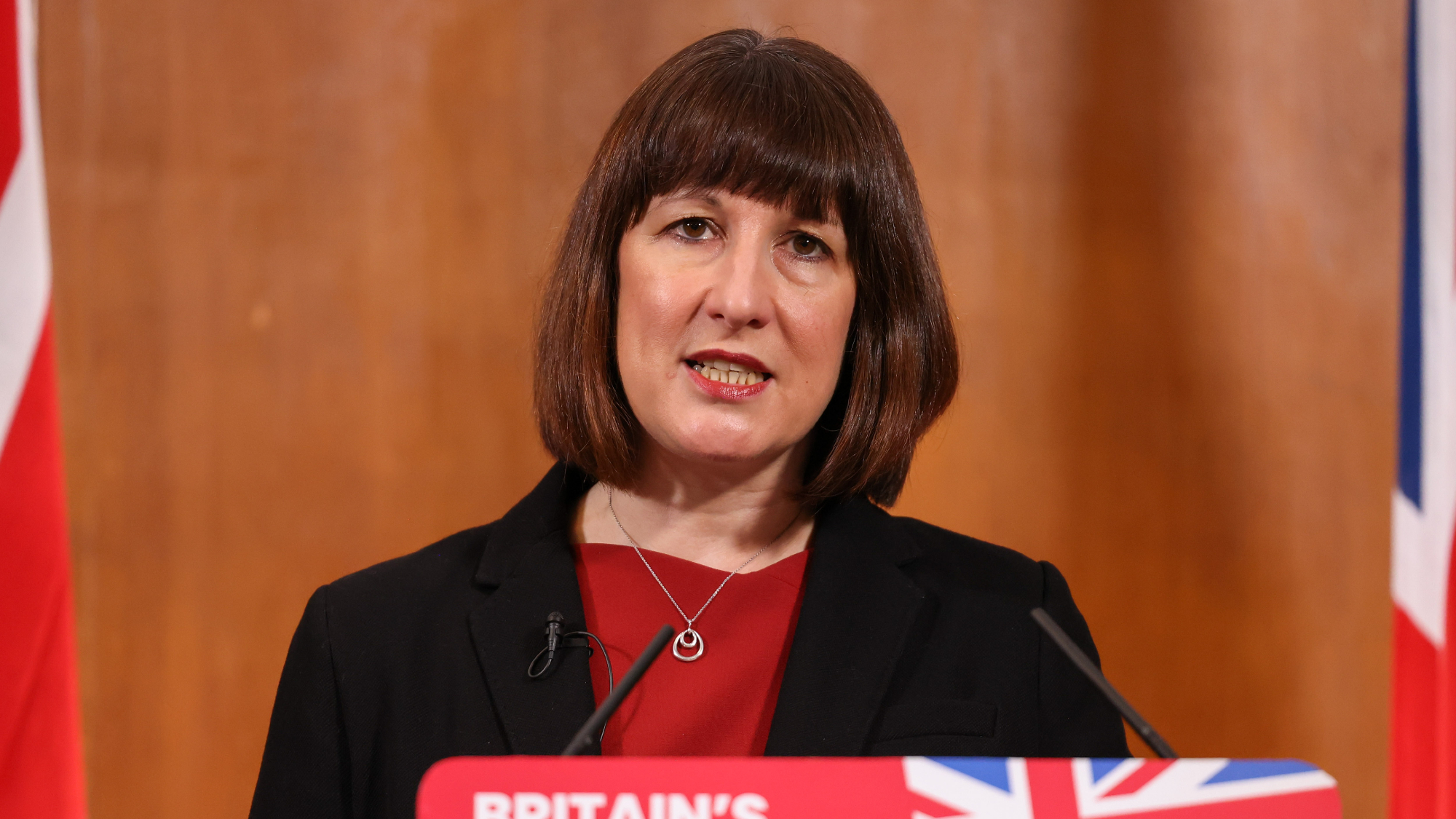Rachel Reeves: does she have a plan?
Pundits have critiqued her statements as alternately too conservative and too extreme

A free daily email with the biggest news stories of the day – and the best features from TheWeek.com
You are now subscribed
Your newsletter sign-up was successful
"It is now fashionable to appreciate Labour's shadow chancellor, Rachel Reeves, for all the wondrous things she is not," said Matthew Parris in The Times. "She's not mad, not stupid, not lazy. She's not nasty, not on the loony Left."
Even so, one might expect the person who will likely be running our economy within months to offer a clear outline of her policies. And the prestigious Mais lecture in the City of London, which she gave last week, would have been a good time to do so. But in the event, the lights dimmed, the drums rolled and the curtain rose "to reveal... nothing": a "shapeless wordfest" that left her audience "none the wiser".
Lack of big ideas is actually 'exciting'
The speech offered an "admirably fluent" analysis of Britain's economic woes, said The Guardian. She argued, cautiously, for a bigger, activist state. But it wasn't enough. The nation needs a plan: a "radical agenda" to deal with the crises of economic stagnation and global warming. Reeves "shrank from the scale of the challenge".
The Week
Escape your echo chamber. Get the facts behind the news, plus analysis from multiple perspectives.

Sign up for The Week's Free Newsletters
From our morning news briefing to a weekly Good News Newsletter, get the best of The Week delivered directly to your inbox.
From our morning news briefing to a weekly Good News Newsletter, get the best of The Week delivered directly to your inbox.
Britain doesn't need a plan, said Emma Duncan in The Times – "if what is meant by 'plan' is some sweeping, radical idea about how to revolutionise the structure of our economy". Jeremy Corbyn had one of those. So did Liz Truss, "and the financial markets gave it the big thumbs down". We don't need radical change, because "the fundamentals of our economy are pretty decent". We have a well-educated population, good economic governance and a "top-notch" service sector. But infrastructure is "threadbare" and growth has been slow, so the economy needs tweaking.
That's what Reeves offered: she wants to spend more on infrastructure, and to liberalise the planning system, allowing homes and commercial buildings to be built more easily. I found her lack of big ideas "exciting": what the British economy needs most is "not to be buggered about", as it has been by the Tories, during "austerity, Brexit and eight years of political instability".
Labour envisages a 'dominating, interventionist state'
Reeves was once dubbed "boring, snoring" by the then editor of Newsnight, said Harry Phibbs on CapX. But her dullness, these days, is not accidental: it's part of Labour's strategy of offering reassurance, and moderate-seeming policies, to disillusioned Tory voters.
Don't be fooled, said Kate Andrews in The Daily Telegraph. Labour envisages a "dominating, interventionist state". It would ban zero-hours contracts. Under Reeves, the Treasury would have an "industrial strategy" for the first time in decades: the state will once again be trying to "pick winners". At a time of historically high taxes and stagnation, this is a worrying prospect.
A free daily email with the biggest news stories of the day – and the best features from TheWeek.com
-
 Why is the Trump administration talking about ‘Western civilization’?
Why is the Trump administration talking about ‘Western civilization’?Talking Points Rubio says Europe, US bonded by religion and ancestry
-
 Quentin Deranque: a student’s death energizes the French far right
Quentin Deranque: a student’s death energizes the French far rightIN THE SPOTLIGHT Reactions to the violent killing of an ultraconservative activist offer a glimpse at the culture wars roiling France ahead of next year’s elections
-
 Secured vs. unsecured loans: how do they differ and which is better?
Secured vs. unsecured loans: how do they differ and which is better?the explainer They are distinguished by the level of risk and the inclusion of collateral
-
 Democrats push for ICE accountability
Democrats push for ICE accountabilityFeature U.S. citizens shot and violently detained by immigration agents testify at Capitol Hill hearing
-
 Fulton County: A dress rehearsal for election theft?
Fulton County: A dress rehearsal for election theft?Feature Director of National Intelligence Tulsi Gabbard is Trump's de facto ‘voter fraud’ czar
-
 ‘Melania’: A film about nothing
‘Melania’: A film about nothingFeature Not telling all
-
 Greenland: The lasting damage of Trump’s tantrum
Greenland: The lasting damage of Trump’s tantrumFeature His desire for Greenland has seemingly faded away
-
 Minneapolis: The power of a boy’s photo
Minneapolis: The power of a boy’s photoFeature An image of Liam Conejo Ramos being detained lit up social media
-
 The price of forgiveness
The price of forgivenessFeature Trump’s unprecedented use of pardons has turned clemency into a big business.
-
 The ‘mad king’: has Trump finally lost it?
The ‘mad king’: has Trump finally lost it?Talking Point Rambling speeches, wind turbine obsession, and an ‘unhinged’ letter to Norway’s prime minister have caused concern whether the rest of his term is ‘sustainable’
-
 ‘Implementing strengthened provisions help advance aviation safety’
‘Implementing strengthened provisions help advance aviation safety’Instant Opinion Opinion, comment and editorials of the day